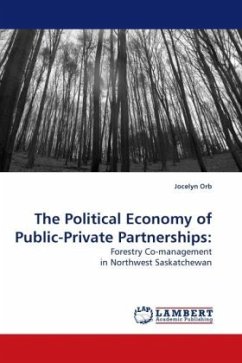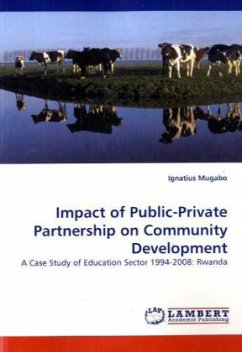Public-private partnerships (PPPs) are innovative alternative service delivery models increasing in popularity with both governmental policymakers and private sector institutions. While there has been much written about PPPs, the literature tends to be descriptive, lacking a theoretical basis. The Political Economy of Public-Private Partnerships: Co-management of Forestry in Northwest Saskatchewan fills in that gap, drawing on such theoretical frameworks as political economy, Olson s collection action and Putnam s social capital theories. By focusing on a particular PPP model involving the co-management of forestry lands in Northwest Saskatchewan, this work explores the effectiveness of PPPs, who wins/loses, power relations within a given partnership and the relationship between state, market and civil society. The Political Economy of PPPs offers an in-depth examination of natural resource co-management schemes. It is essential reading for academics and professionals in the areas of Political or Environmental Science, particularly for those with a vested interest in PPPs pertaining to environmental sustainability or Aboriginal communities.
Bitte wählen Sie Ihr Anliegen aus.
Rechnungen
Retourenschein anfordern
Bestellstatus
Storno








